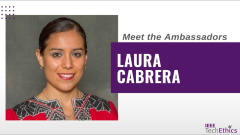This session addresses the ethical and social impacts of the development and deployment of sustainable smart grid technologies. A panel of global experts provide insights into the benefits and challenges of these technologies.
About the Panelists:
- Simone Abram is Professor in Anthropology at the University of Durham (UK) and is currently Executive Director of the Durham Energy Institute. She has a DPhil in Social Anthropology and an MEng in Electrical and Electronic Engineering. Her research covers social and ethical issues in the energy transition. She leads a national network for Equality, Diversity and Inclusion in Energy Research (EDI+) and is a co-investigator of the Norwegian Research Centre for Socially Inclusive Energy Transitions (Include). Prof Abram founded the European network for energy anthropology and is a member of the oversight committee of the IEEE Lightsmart competition.
- Fortune Nwaiwu is a postdoc researcher at the Made Smarter Innovation: Centre for People-Led Digitalisation. He has several years of industry and academic experience on digital transformation, digital technologies adoption and use both in industry and society, as well as research expertise in the area of ICT for Development (ICT4D) research, including digitalisation and sustainable energy transitions in Africa. He graduated with a PhD in Economics and Management from Tomas Bata University in Zlin, the Czech Republic; MBA from Nyenrode Business University in the Netherlands, and a master's degree in security and risk management from the University of Leicester.
- Dr. Pritpal Singh is a Professor of Electrical Engineering at Villanova University. He has been teaching and performing research in solar energy for over 40 years. He also works with students on the design and application of technologies for sustainable development. He ran his own solar business in India for five years and has consulted for the US Department of Energy and three private companies on solar electric systems. He has worked with UNICEF in Nicaragua, Burundi and Zimbabwe and has recently worked on renewable energy and connectivity projects in Ecuador. He served as the IEEE SIGHT Education Subcommittee Chair from 2017 – 2019 and is presently the Vice President of the IEEE Smart Village Education Committee. He served as the Technical Chair for the 2020 IEEE Global Humanitarian Technology Conference (GHTC) and will serve as Co-Chair and host of the 2023 IEEE GHTC Conference. He was recently awarded the IFEES Duncan Fraser Global Award for Excellence in Engineering Education.
- Mark A. Vasquez (moderator) is a Certified Association Executive (CAE) with over 30 years of experience in association management at IEEE. He currently serves as the senior program manager for IEEE TechEthics, a program that drives conversations about the ethical and societal impacts of technology. In this capacity, he works to develop relationships with others in the technology ethics community, produces events, convenes thought leaders, and more. Mark is an engineering graduate of The Cooper Union.
Recorded on 24 October 2023 at IEEE PES ISGT Europe. Produced in partnership with the IEEE Power & Energy Society (https://ieee-pes.org/).
This session addresses the ethical and social impacts of the development and deployment of sustainable smart grid technologies. A panel of global experts provide insights into the benefits and challenges of these technologies.
 Cart
Cart Create Account
Create Account Sign In
Sign In





